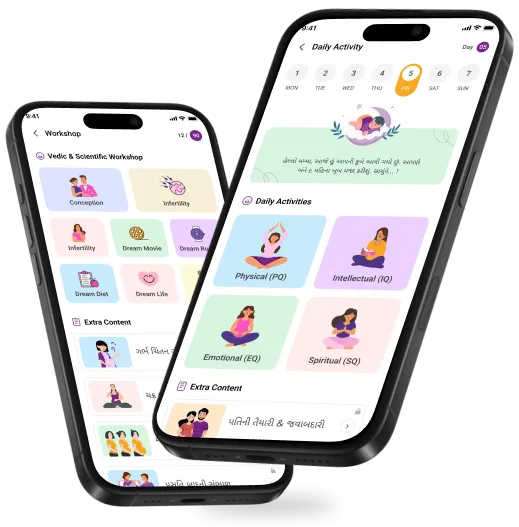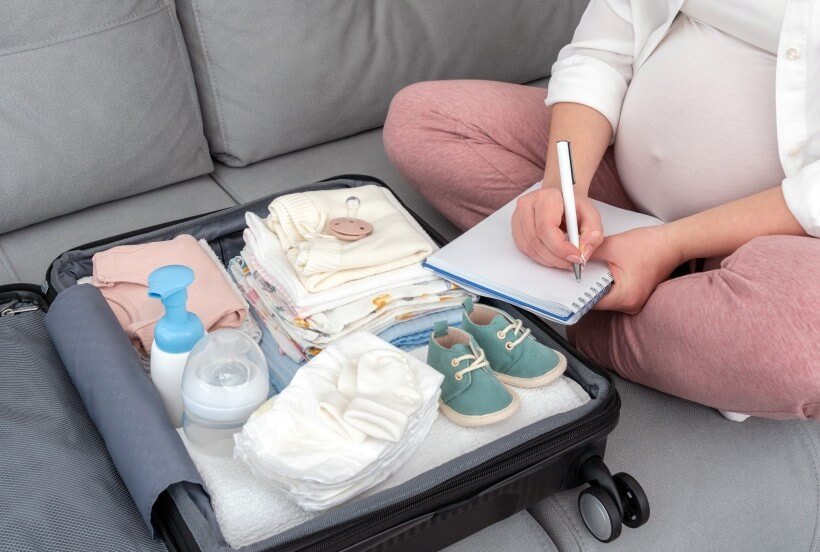Being pregnant is a wonderful journey, but it comes with its challenges. One common issue many pregnant moms face is iron deficiency symptoms. Let's dive into why iron is so important?, why you might have low iron symptoms?, and simple ways to boost your iron levels.
Why Iron is Important?
Iron is a vital mineral that helps our bodies make hemoglobin, a protein in red blood cells that carries oxygen. When you're pregnant, your body needs more iron to support your growing baby and to help increase your blood volume.
Imagine This: Think of iron as the fuel for your body. Just like a car needs gas/petrol to run, your body needs iron to keep going, especially during pregnancy.
1. Important Part of Blood
Iron helps make hemoglobin in the blood. Hemoglobin carries oxygen to every cell, which helps digest food also. During pregnancy, your baby also needs iron to support their blood supply and overall growth.
Imagine This: Think of hemoglobin as a delivery truck, transporting oxygen to all the cells in your body. Without enough iron, these trucks can’t make their deliveries efficiently.
2. Boosting Immunity
Iron increases the immunity of both mother and baby, helping protect against diseases and infections. It ensures that both you and your baby stay healthy with this pregnancy symptoms.
Visualize This: Picture iron as a shield, protecting you and your baby from harmful germs and illnesses.

3. Co-factor in Enzyme Production
Iron is important for making enzymes, which help with digestion, breathing, and protecting against cholesterol. Enzymes activate when they touch food, and iron is key in this process.
4. Supporting Muscle and Tissue Health
Iron makes a protein called myoglobin, which carries oxygen to muscles and tissues. This is important for keeping your body strong and healthy.
5. Produces More Blood
During pregnancy, your body needs a lot of blood. Iron helps make enough blood to support you and your baby.
6. Necessary for Fetal Development
Your baby needs iron for muscle and physical development. The baby gets this iron from your blood, which is why doctors recommend more iron during pregnancy.
7. Reduces Problems During Delivery
Having enough iron reduces risks during delivery. Even if there’s some bleeding, enough iron helps prevent serious problems.
8. Helps Control Baby's Weight
Iron-rich foods help keep your baby’s weight healthy at birth, preventing issues from being underweight.
9. Helps in Recovery After Delivery
Iron helps your body recover after pregnancy and blood loss from delivery. Eating iron-rich foods regularly during pregnancy aids in a quicker recovery.
Causes of Iron Deficiency During Pregnancy
- Increased Demand: Your body needs more iron to support your baby and placenta.
- Diet: Not eating enough iron-rich foods can lead to low iron levels.
- Absorption Issues: Sometimes, your body might not absorb iron properly.
- Blood Loss: Even small amounts of blood loss can lower iron levels, which can happen with frequent blood tests or due to other reasons.
Visualize This: Picture your body as a busy factory. When you're pregnant, the factory is working overtime to produce everything your baby needs. Without enough iron, the factory can't keep up with the extra work.

Signs of Iron Deficiency
- Feeling very tired or weak
- Pale skin
- Shortness of breath
- Dizziness or lightheadedness
- Fast or irregular heartbeat
These are symptoms of ‘anemia’ in pregnancy. If you notice these signs, it's important to talk to your doctor because you might have pregnancy anemia. Let’s know about how to manage iron deficiency during pregnancy.
{{cool-component}}
Simple Solutions to Boost Iron Levels
Here are some expert tips for iron deficiency in pregnancy.
1. Eat Iron-Rich Foods:
- Plant Sources: Spinach, Beetroot, beans, lentils, and fortified cereals can help too. These are the best iron-rich food for pregnant women.
2. Pair Iron with Vitamin C:
- Eating foods rich in vitamin C (like oranges, strawberries, and bell peppers) can help your body absorb more iron from plant sources and prevent morning sickness.

3. Cook with Cast Iron Pans:
- Cooking your food in cast iron pans can actually add small amounts of iron to your meals.
4. Take Iron Supplements:
- Sometimes, diet alone isn't enough. Take safe iron supplements for pregnant women. Your doctor might recommend the best iron supplements for anemia.
Imagine This: Think of your meals as building blocks. Each iron-rich food you eat adds a brick to your strong, healthy body, supporting both you and your baby.
Safety Tips
Here are some Simple tips for iron deficiency in pregnant women:
- Always consult your doctor before taking any medicine or iron supplement pregnancy.
- Do not take iron and calcium and other prenatal vitamins medicines together.
- Avoid tea or coffee two hours before or after taking iron supplements in pregnancy.
- Take iron with vitamin C for better absorption. Morning is a good time for this.
- If iron tablets make you sleepy, take them at night and calcium in the morning.
{{cool-component-1}}
Final Thoughts
Iron deficiency during pregnancy is common, but it's manageable. By understanding the reasons behind it and knowing the simple steps you can take, you can keep your iron levels in check and enjoy a healthier pregnancy. Always remember to consult with your healthcare provider for personalized advice and support. Iron is important or pregnancy planning and iron deficiency management.
Being proactive about your iron intake will help ensure you have the energy and health you need to welcome your little one into the world.
Disclaimer: This blog is correct as per the writer's knowledge. This is not medical guidance. Follow as you are responsible for.












.webp)

.webp)





